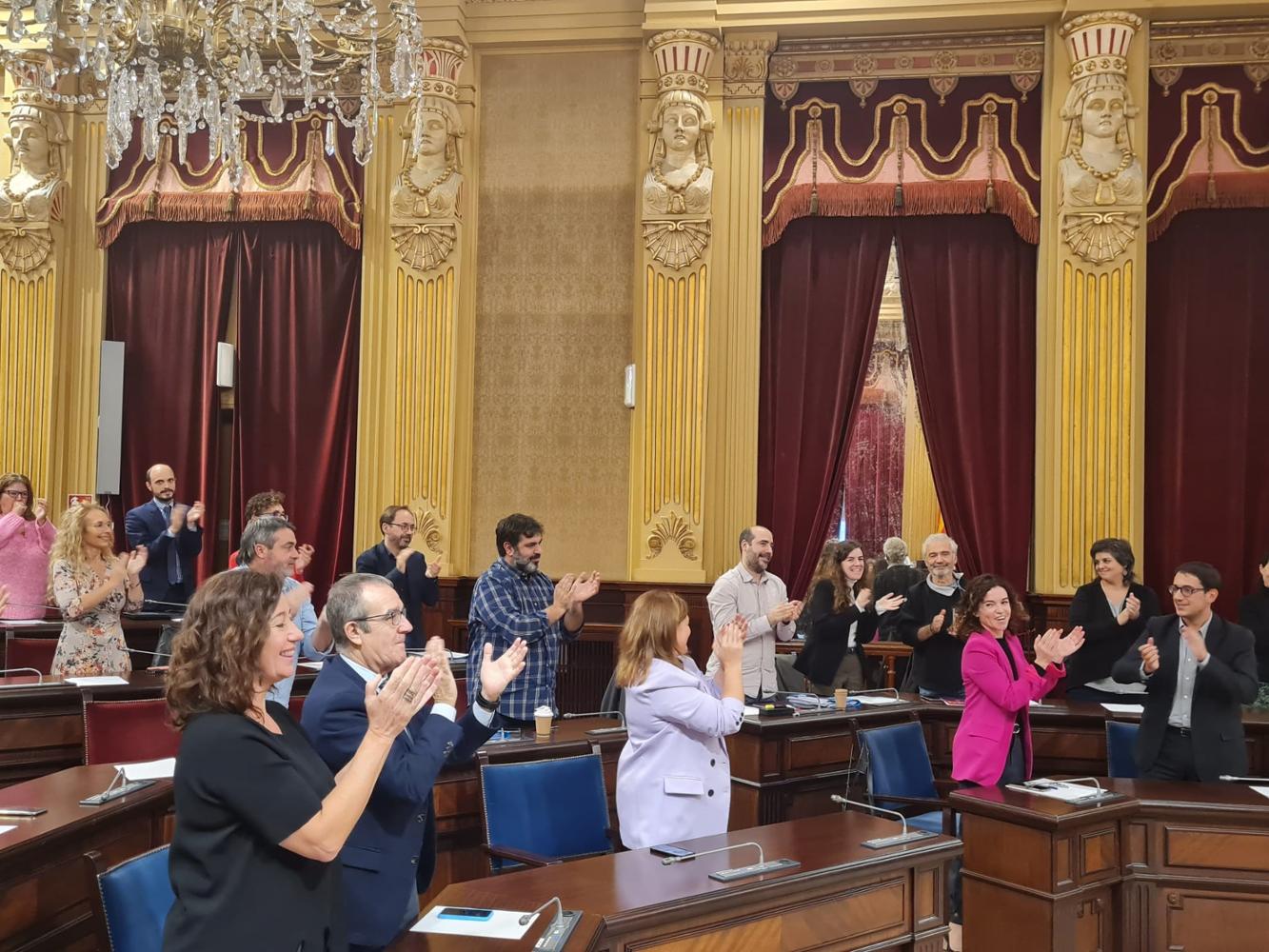271 amendments from the parliamentary groups have been incorporated during the parliamentary procedure
The plenary session of the Parliament of the Balearic Islands has definitively approved the draft general budget law of the Autonomous Community of the Balearic Islands for 2023. After three days of plenary sessions for the final debate on the accounts, the chamber has today completed the final approval of the budgets, which, as highlighted by the Minister of Finance and Foreign Affairs, Rosario Sánchez, “reflect the stability of this Community, of this Government and of the left-wing majority, and allow us to continue on the path begun eight years ago of recovering rights, strengthening the welfare state and social justice”.
TDB keeps you informed. Follow us on Facebook, Twitter and Instagram.
With more resources than ever before, to over 7,133 million euros, 11.5% more than this year (+735 million), the 2023 Budget allocates a significant part of these resources to investment policies, while once again reaching new all-time highs in the budget allocated to social policies or those that affect the improvement of the production model and sustainability.
In addition, the accounts will enable the economic situation resulting from the war in Ukraine to be tackled in a solid way, and the social shield to be extended to deal with inflation and the energy crisis, with a whole series of direct aid, with more and better tax deductions, with tax reductions, with more credits for the business fabric and, in short, with a set of measures that will reach 80% of the population of the Balearic Islands, the middle and working classes.
The Councillor for Finance and External Relations, Rosario Sánchez, stated that the Balearic Islands will have budgets that once again reach historic figures for social policies and, at the same time, for making progress on the policies that contribute most to improving our production model and guaranteeing sustainable growth.
“It is a budget that responds to present and future challenges. It gives continuity to the strengthening of public services; it includes the measures agreed in the so-called social shield to deal with price increases and the social and economic needs arising from the crisis caused by the war, and, at the same time, it allows us to continue promoting an unprecedented cycle of public investment and to make progress on the objectives of the Illes Balears 2030 Investment Strategy,” the councillor stressed.
Amendments incorporated
Rosario Sánchez also valued the contributions of the parliamentary groups, with a total of 271 amendments incorporated into the budgets during the parliamentary process (169 in the committee, 64 in the committee and 38 in the plenary), of which 60 have been proposed by the opposition parties.
Improving the production model and sustainability
It should be remembered that, by 2023, the budget for areas associated with development, the improvement of the production model and sustainability will increase extraordinarily, partly thanks to European funds which, through the Recovery and Resilience Plan, promote projects for the ecological and digital transition, to promote sustainable growth and economic, social and territorial cohesion.
The budget for key policies to improve the productive model and sustainability grows by 48%, reaching 754 million euros by 2023.
The budgets by areas of development and improvement of the productive model and sustainability mean more resources for energy transition policies (a total of 63 million, +66.5%), environment (236 million, +21%), primary sector (74 million, +25%), sustainable mobility (201 million, +27%), trade and industry and sustainable tourism (137 million, +272%) and research (44 million, +79.5%).
Social spending
In addition, more than 4,096 million euros are earmarked for social spending, a new maximum that increases this year’s initial budget by 13% and with which almost six out of every ten euros of the available resources are allocated to health, education, social services, employment and housing policies.
By volume of resources, it is worth highlighting that health policies exceed 2,300 million (10% more than in 2022), education policies increase to 1,244 million (nearly 10% more) and social services increased by nearly 36% to almost 375 million.
Investments
Overall, public investment increases significantly, to almost 1,220 million, including the ministries, the Health Service and the companies and entities of the instrumental public sector, a figure that represents an increase of 30%, 280 million more than in 2022.
The Govern’s contribution to the financing of the island councils also increases, reaching a new all-time high of 553 million euros, 28.8% more than in the initial 2022 budgets. The overall increase will be 124 million euros.
The budget for public policies – non-financial expenditure – grows even more, by 15%, to 5,947 million, an increase of 770 million compared to 2022, while the financial budget, earmarked for the payment of the repayments of the CAIB’s accumulated debt, is slightly reduced (-3%), to 1,186 million, 35 million less than this year.
